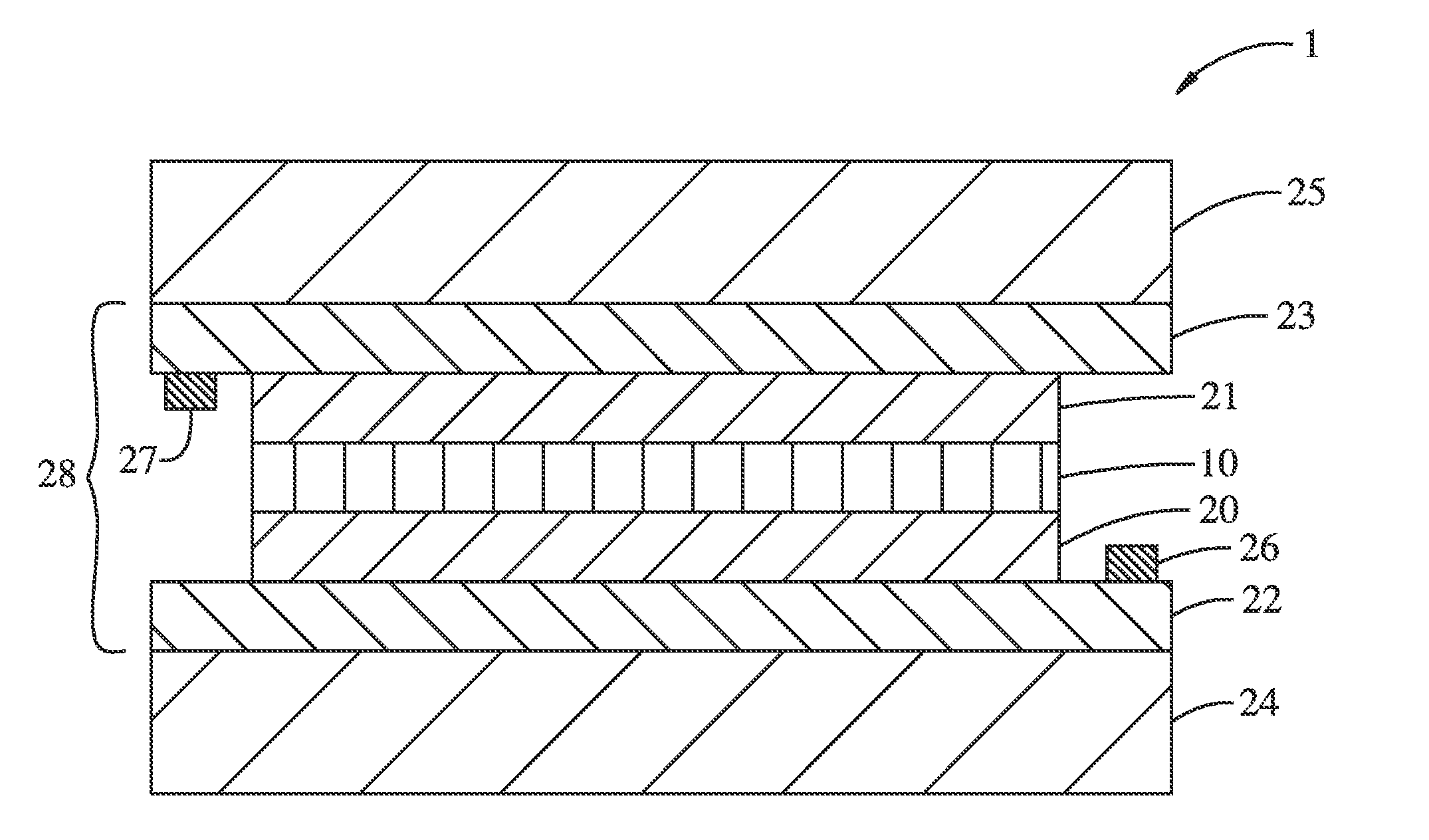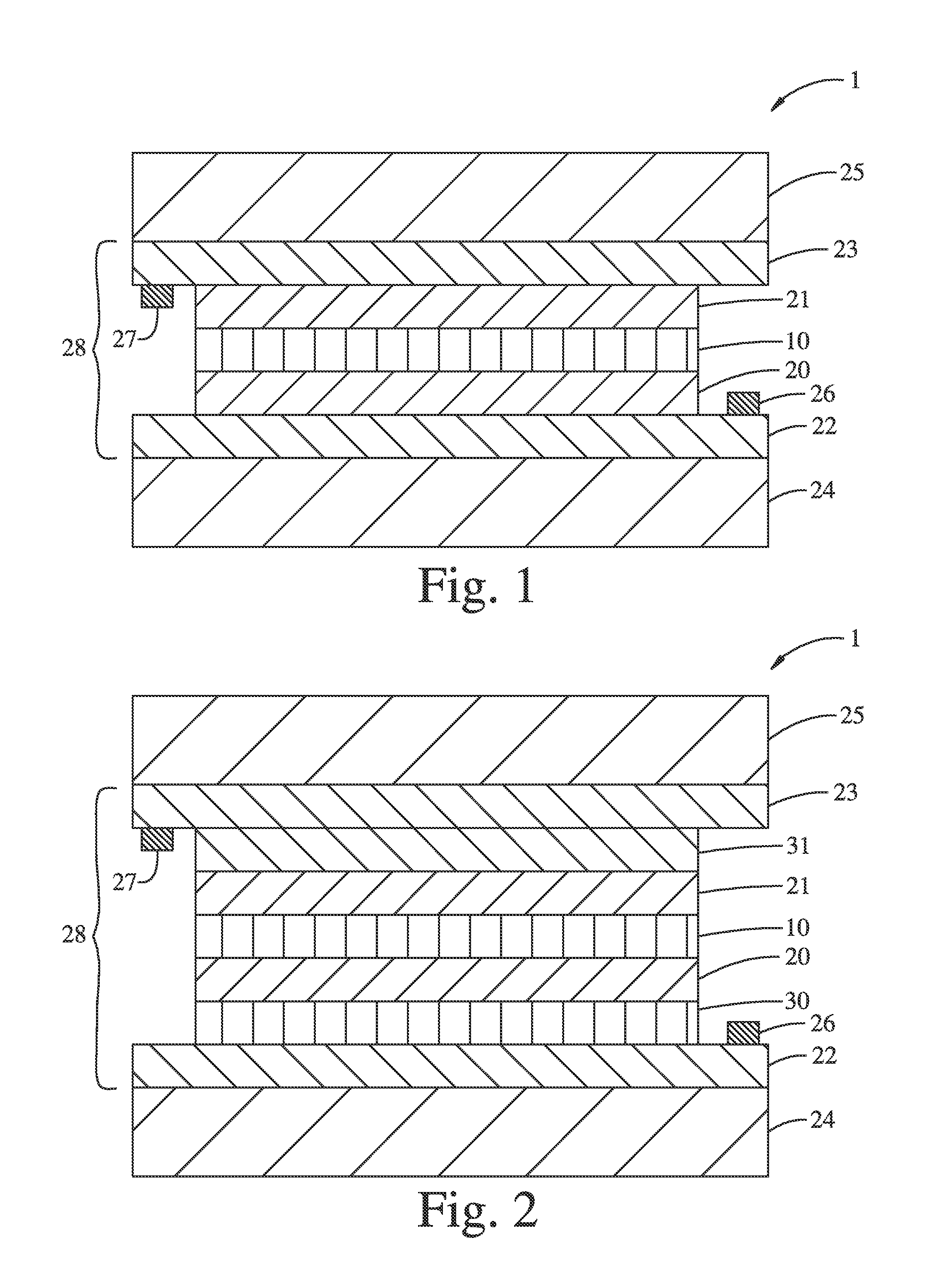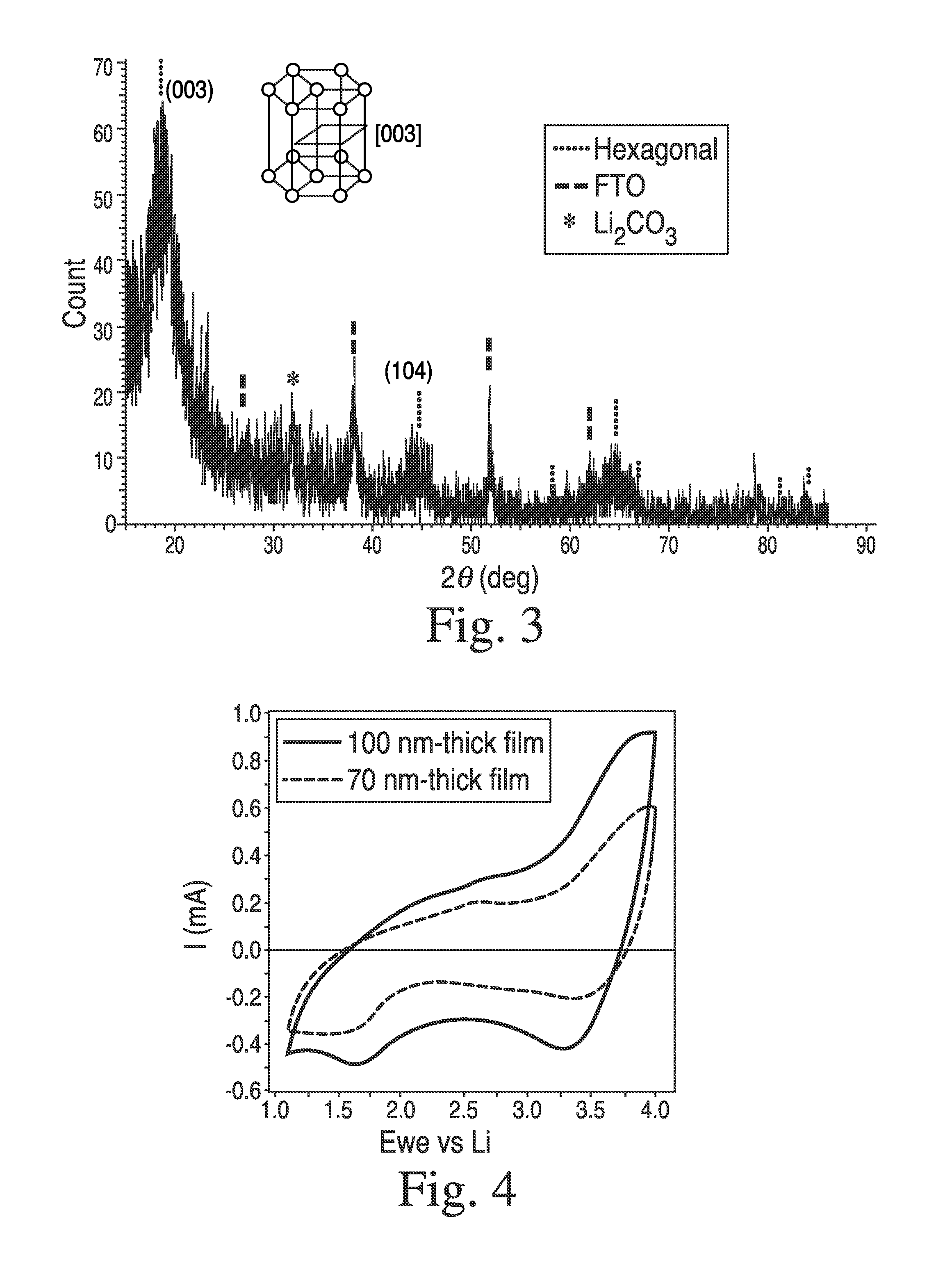Process for preparing a multi-layer electrochromic structure
a technology of electrochromic structure and multi-layer, applied in the field of lithium nickel oxide preparation, can solve the problems of shortening the useful life of the window, reducing the electrical performance of the lithiated nickel oxide, darkening the material, etc., and reducing the material performance. the effect of bleached state lithiated nickel oxid
- Summary
- Abstract
- Description
- Claims
- Application Information
AI Technical Summary
Benefits of technology
Problems solved by technology
Method used
Image
Examples
example 1
Synthesis of Hydrolysable Ni Precursor
[0143]Hydrolysable Ni(II) precursor compound (Ni(DMAP)2) has been synthesized by a modification of the known method (Hubert-Pfalzgraf et. al. Polyhedron, 16 (1997) 4197-4203.) To an anhydrous toluene solution (200 mL) of pre-dried N,N-dimethylamino-2-propanol (8.17 g, 0.0787 mol), was added NaH (1.92 g, 0.0800 mol) by small portions in a N2-purged glove box. The mixture was stirred at room temperature for 2 h until it became clear. To this solution was added Ni(NH3)6Cl2 (9.0 g, 0.039 mol), and it was heated at 80° C. for 6 h, affording a dark green solution. Then the solution was evaporated to dryness under reduced pressure, and the resulting solid was re-dissolved in THF (˜300 mL) which then was filtered through a gravity funnel. Dark green filtrate solution was concentrated to ⅓ of the initial volume, diluted with Hexanes (50 mL) and then cooled in a freezer (˜20° C.). Green needle-shape microcrystals were obtained after one day, which were fi...
example 2
LiNiO2 Film Synthesis
[0144]In a 20 mL-scintillated vial, were added NiDMAP (70 mg), LiOMe (11 mg) and anhydrous MeOH (0.6 mL), affording a dark red solution. Then, electrically conductive FTO (fluorinated tin oxide, 20 mm×20 mm×2 mm) coated glass was loaded in a spin-coater in the glove box. Onto the FTO substrate, was dispensed 0.3 mL of the precursor solution through a 0.2 μm filter and spun at 2500 rpm for 1 min. Sealed in a container in order to avoid air-exposure (CO2 and moisture), the coated film was taken out of the box and was hydrolyzed under warm moisture (45° C.) for 1 h in a N2-filled glove bag. Then it was transferred into an O2-purged tube furnace and subsequently dehydrated under O2 at 400° C. for 1 h. After being cooled down, film thickness was measured as 70 nm by profilometry. Structural phase of the coated film was determined by thin-film XRD measurement, which was identified as hexagonal layered LiNiO2 phase exhibiting an intense peak at 28=18.79° corresponding ...
example 3
Li2NiO2 Clear Film Synthesis
[0145]In order to isolate the clear state Li2NiO2, a LiNiO2 film (100 nm thick) prepared as described in Example 2, was electrochemically reduced by cycling between 1.1 and 4.0 V in the electrochemical cell under Ar-atmosphere and stopping at 1.1 V. Then, the film was taken out of the Ar-box, and was exposed to air while its thin-film XRD was collected by Bruker d8 Advance. After that, the film was brought back into the Ar-glove box, and EC cycling was carried out, which gave result in negligible current flow with no optical transmission change at 550 nm.
[0146]Then, another LiNiO2 film was prepared in the same method as Example 2, and was cycled 5 times between 1.1 and 4.0 V in the electrochemical cell under Ar-atmosphere, affording charge capacity estimated to 23 mC / cm2. The cycling was stopped at 3.6 V, and the film was isolated and subsequently immersed in a freshly-prepared solution of Lithium Benzophenone in THF (deep blue solution) without exposure ...
PUM
 Login to View More
Login to View More Abstract
Description
Claims
Application Information
 Login to View More
Login to View More - R&D
- Intellectual Property
- Life Sciences
- Materials
- Tech Scout
- Unparalleled Data Quality
- Higher Quality Content
- 60% Fewer Hallucinations
Browse by: Latest US Patents, China's latest patents, Technical Efficacy Thesaurus, Application Domain, Technology Topic, Popular Technical Reports.
© 2025 PatSnap. All rights reserved.Legal|Privacy policy|Modern Slavery Act Transparency Statement|Sitemap|About US| Contact US: help@patsnap.com



